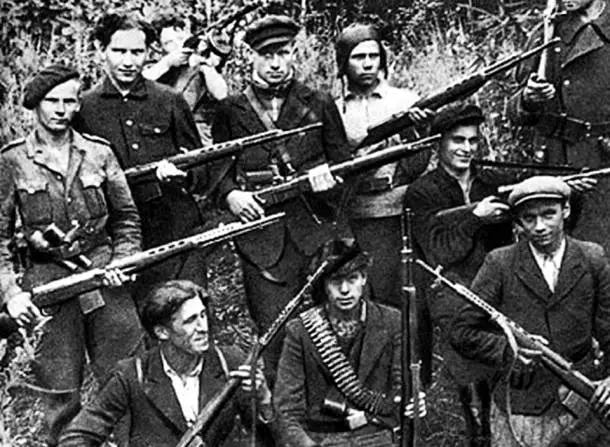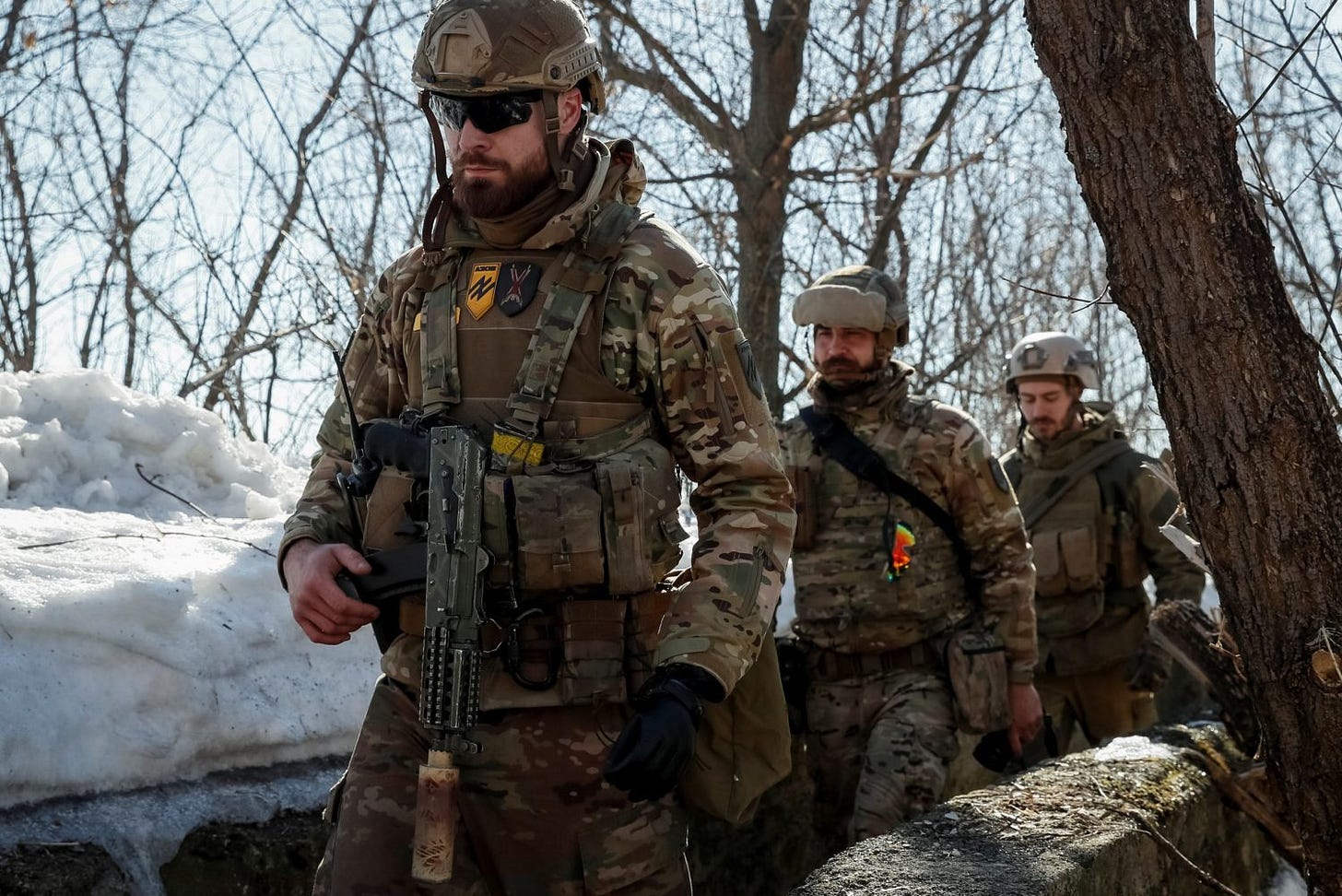How Canada's Unintentional Celebration of a Nazi Hurts Ukraine
Canadian lawmakers honoring Yaroslav Hunka without vetting his background only helps Putin's "denazification" narrative and emboldens his supporters in the West when the truth is more complicated.
Special thanks to El Diablo for his input on this piece.
These days it seems like you can’t go five minutes in online discussions without someone inevitably making reference to Nazis, Adolf Hitler, or the ideology of the Third Reich. In fact, that’s what Godwin’s Law is all about, which has made such accusations coming both from the right and left against their opponents rather quaint due to their overuse. Some debate whether the deterioration of online discourse into reductio ad Hitlerum is an actual phenomena or not, but one can’t shake the feeling that seemingly everyone is a Nazi now.
Yet what happens when people aren’t crying wolf anymore and we actually have a real Nazi on our hands? That’s precisely the dilemma that Canada is in after the country’s House of Commons honored a 98-year-old soldier named Yaroslav Hunka during a state visit by Ukrainian President Volodymyr Zelensky in September. Speaker Anthony Rota referred to Hunka as a “Ukrainian hero” and a “Canadian hero” who fought for “Ukrainian independence against the Russians” during World War II.
It didn’t take people long to discover that Hunka had been a Ukranian volunteer of the 14th Waffen Grenadier Division of the SS (1st Galician), a Waffen-SS unit praised by Heinrich Himmler himself. Canada now has egg on its face after the revelations, resulting in an embarrassed apology from Prime Minister Justin Trudeau and Anthony Rota resigning from his position.
The internet reacted in all the ways one could expect, with both right-wing and left-wing ideologues and groups who were always opposed to helping Ukraine in its war against Russia gloating over Canada’s unintentional celebration of a real Nazi. It’s unfortunately an easy propaganda victory for Putin, while any nuance that could be found in this dumpster fire of a story is lost amid all the noise.
Yaroslav Hunka is indeed a Nazi and not the “You-disagreed-with-my-political-opinion-on-social-media-so-you-definitely-support-Hitler” kind. The Canadian government should not have invited him as an honored guest, while the lack of vetting is an extremely stupid oversight on the part of its lawmakers. At the same time, Hunka’s background is illustrative of the difficult situation Ukraine and other parts of Eastern Europe were in during WWII. Like with most parts of history, it’s complicated.

I should state my position clearly that I have always been a staunch supporter of Ukraine since Russia’s invasion in February 2022. I view Vladimir Putin as one of the worst despots currently in power, coming close to the likes of Xi Jinping, Bashar al-Assad, and Kim Jong Un. The war that he has been waging against Ukraine for nearly two years has been nothing short of a disastrous decision, and his stated aim to “denazify” the country is a laughable excuse to justify threats he has been making against the country since 2008. I think that it is well within U.S. interests to send the Ukrainians the vital military aid they need to win their fight for continued existence as a sovereign country and while the war is still long, it will be over with Putin failing.
But what about this Nazi business? Much has been said about Ukraine’s far-right Azov Battalion and its ties to fascism and/or neo-Nazism, which both Putin and his sycophantic supporters in the West argue is ammunition for Russia’s “denazification” narrative. Of course, the real truth is far more complicated. Regional scholars have pointed out that Azov as it currently exists has little to do with its original incarnation. After being integrated into Ukraine’s National Guard in late 2014, the unit largely lost its ties with the country’s far-right and or anything to do with neo-Nazis.
Azov in its earlier form was lead by Andriy Biletsky, a far-right politician whose political party the National Corps held no seats in Ukraine’s parliament and suspended its political activities following Russia’s invasion. He is completely irrelevant politically, but currently serves as the leader of the 3rd Assault Brigade. Its soldiers are known for participating in some of the most dangerous and risky battles of the war, having scored several victories against Russian forces such as in Kherson.
If Ukraine has any remaining far-right elements in its military, they would likely be localized here and at higher risk of being killed anyways, but the exact number is hard to determine. With Biletsky in charge, could a few hundred of his men possibly still be far-right or sympathetic to fascist figures? Most likely, but at that point we’re operating on guesswork and speculation, which is like trying to figure out how many enlisted men in the U.S. Army are more racist than the average American. Ukraine currently has an estimated total of 500,000 military personnel, which makes Azov soldiers a tiny percentage and the amount of anyone close to an actual neo-Nazi in the country’s forces even infinitesimally smaller.





